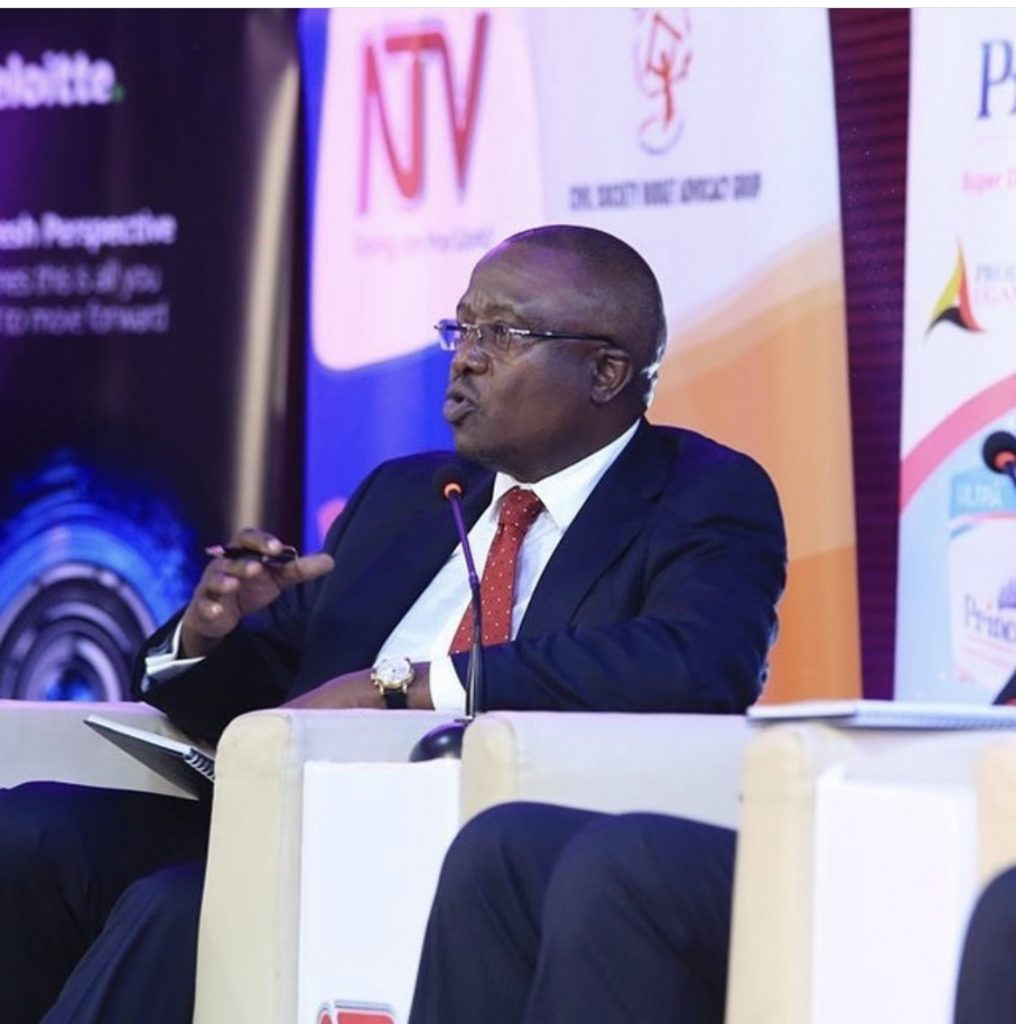 Professor Samuel Sejjaaka is an entrepreneur, accountant and academic. He is an associate professor of accounting and finance at the Abacus Business School in Uganda, which he founded. He also advises banks in the country and is the author of the popular Bodanomics blog that explores structural changes in the Ugandan economy.
Professor Samuel Sejjaaka is an entrepreneur, accountant and academic. He is an associate professor of accounting and finance at the Abacus Business School in Uganda, which he founded. He also advises banks in the country and is the author of the popular Bodanomics blog that explores structural changes in the Ugandan economy.
At an event hosted by The Africa List, Sam answered questions from members about how he measures success, the strategies he uses to build relationships and the hardest part about leadership.
What does success mean to you?
That’s a difficult one. The first thing is that I am comfortable with myself. That is my first measure of success. When I am out in the public, can I hold my head up? Can I stand and be counted? My second measure then would be in terms of my career; it was very interesting. When I joined the civil service in 1987, it was rare for people to go to school. As a fresh graduate you acquired a scholarship. I went off to Scotland. When I came back, you can imagine my dilemma. We used to be recruiting and you had a public service commission. When I came back to the Ministry of Finance, I found I fitted in more at the university. So, my measure of success is I meet so many people and teach them, and they say they are happy with what I teach them. My next would be raising a family of seven kids. That is part of your dilemma – to have a family and feel pride is very important. So those are three.
What strategies do you use to build relationships?
The most important thing is to love yourself. To build relationships you must see how you love and carry and like yourself. Then you’re more likely to feel nice about the world. When I look at you, you are looking after yourself. That’s a starting point. Next, is social awareness about other people. If you are socially aware, you are able to interact with them in a civilised way. That’s how you build relationships.
Who has had the biggest impact on your career?
My mother – we lived through some of the hardest times, of Idi Amin and the economic war. My father’s income was never enough. My mother worked as a copy typist. She left her job and started farming. During holidays we would spend time digging so we could grow enough food for ourselves. Her industry and perseverance is amazing. How you can change a country is through the women, more than men. I’m not trying to be nice.
How do you know you’re leading well?
Because I make decisions and that’s part of being a leader. Those decisions may not just be good, they need to be fair. If I revisit those decisions after one year, five years – and I’m happy with them, that’s fair. The second part is trying to give value. One of the things I find difficult in my profession is the idea of how can I not steal from others or misappropriate resources. I think being a leader is something I always try to work on. If you put those together, people listen to me because they believe that I am being honest. So those are the three things: the ability to affect decisions, to be a leader, to build influence – that comes from how you lead.
What’s the worst professional advice you see or hear?
I wanted to be a lawyer, but my dad said, ‘I think you should be an accountant.’ I went to study to be an accountant. Over time, I’ve seen it was well-meaning. But it was not out of my own vocation I would have been an accountant. I say to young people, I don’t care if you become a lawyer or an accountant or physician – follow your heart.
What books do you recommend people read?
I’m reading a book called Factfulness. Everyone is talking about this book, so all of you guys should read it. Get a copy. It’s just come out, it’s amazing. Factfulness by Hans Roslng. That’s what I’m reading right now.
Where do you predict Uganda will be in 20 years?
That’s why you guys should read Factfulness. I think Uganda will be a better country. What the data shows is that all countries are generally improving. There’s a big if there though – if we keep doing the right things, keeping youth in school and ensuring they’re properly skilled, then Uganda will be a great country. There will be a lot of change coming, so things are looking positive.
What do you spend most of your time thinking about as a leader of your organisation?
The next goal. The organisation, once I have achieved my goals, they become obsolete. I always wonder what’s next.
